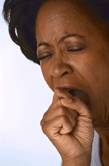Those with low or moderate incomes will also be eligible for federal tax credits

WEDNESDAY, Sept. 25 (HealthDay News) — Chris Smith is a 32-year-old Ph.D. candidate in religious education who doesn’t really know what the new health insurance exchanges will offer or what the coverage will cost. But she’s eager to find out.

Smith will earn her degree from Fordham University in New York City next May. Eventually, she hopes to land a full professorship with health benefits. But as a new graduate, she’ll probably spend one to three years in part-time teaching assignments that don’t offer job-based health insurance.
The new health insurance exchanges, or “marketplaces,” created under the Affordable Care Act, the Obama administration’s sweeping health reform law, may offer her a solution. [Read more…]












